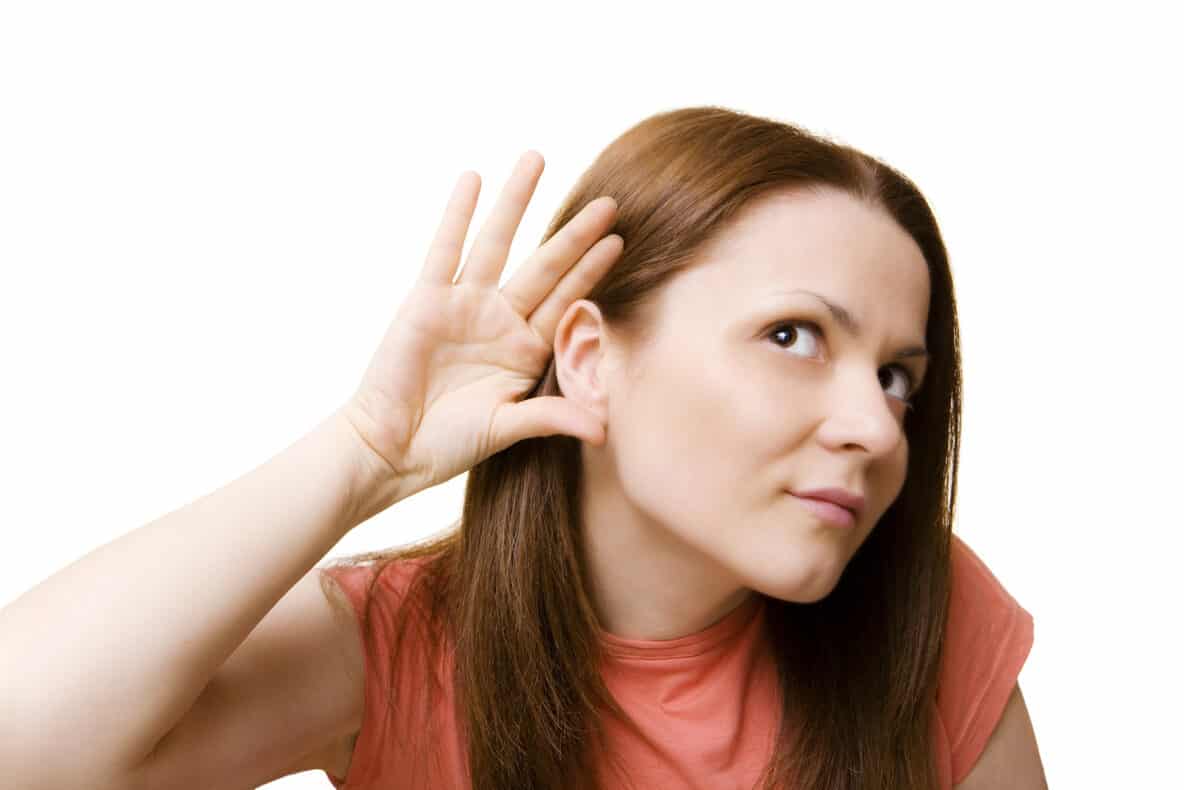Noisy situations are difficult for many people, regardless of their hearing health. However, it’s a much more fraught situation for people with hearing loss. It’s even more effortful to listen and difficult to connect with others when we have to strain to understand what they’re saying.
Instead of vowing to never attend another party, here are five tips for better hearing in noise.
How hearing loss works
An important aspect of the hearing process is invisible to the naked eye. The sensitive cells of the inner ear are responsible for receiving noise from the world, turning it into sound information and then sending these signals to the brain for processing. We are born with a finite number of these cells and their health degrades due to the natural aging process and exposure to excessive noise.
As they degrade, we lose these cells and their number declines when they do not repair themselves or reproduce. Instead, we have less of them to catch the wide spectrum of noise previously available to us. We then send less sound information to the brain and we experience this as hearing loss.
Noisy situations exacerbate this issue of reduced ability to hear all frequencies of sound. The brain is working harder to try and filter out background sounds despite our reduced capacity. Speech clarity, already an initial symptom of hearing loss, is at its lowest in noisy or busy environments.
5 Tips for Better Hearing in Noise
Pack your patience (and reasonable expectations)
Nine times out of ten, high expectations will dampen the actual experience. If you’re headed out to dinner with friends, a family party or a social gathering you’ve looked forward to, remember that your hearing aids will simply not function the same way they do at home or in a quiet car. Hearing in a noisy environment can be difficult for everyone, but particularly so for people with hearing loss.
Encourage yourself to have fun and engage in conversations to the best of your ability without the pressure to understand 100 percent of everything said to you. It also helps to identify a buddy at the event in advance, who you can tap on the shoulder if you’re feeling left out of conversation. Ask them to support you if you need help feeling included and social.
Stand with your back to the sun (or light source)
Having a conversation partner in your clear line of vision can make a dramatic impact on how well you’re able to communicate. In this scenario, you’re choosing to have their face well illuminated instead of squinting into the sun and leaving their face in shadow. The additional context of facial expressions and the movements of their mouth will help you to understand and identify speech.
Use the architecture to your advantage
Sit or stand with your back against a wall or other noise barrier. This blocks background sound from interrupting your ability to hear and focus on what your conversation partner is saying. If a wall is unavailable, such as at an outdoor gathering, choose somewhere on the outskirts of the crowd. Remember that it’s perfectly acceptable to voice your needs and using a sentence like “I’m having trouble hearing you, can we move over here where it’s quieter so that we can continue this fascinating conversation” is a graceful way to make your request.
Look for quiet restaurants
Stay away from industrial-style restaurants with their concrete walls, metal tables and high ceilings. Sound will just bounce around and even be amplified in those decor choices. Choose restaurants with carpeting and low ceilings, who in addition to displaying amped up ambiance, will also be more muted and less cacophonous. Be in and out before 9pm. Restaurants tend to get a party atmosphere after 9pm, so dining early can mean having a more peaceful experience.
Source from your friends on Facebook or in person and read reviews of restaurants online. If noisy is a word that shows up a lot, consider take-out instead of dining in, or skip it altogether. Do choose places where words like ‘cozy’ and ‘quiet’ make it into a few descriptors.
Try out an Assistive Listening Device
In addition to your hearing aids, you might want to look into additional hearing loss intervention tools. Assistive Listening Devices (ALDs) are non-prescription products that can fill in the gaps of your listening experience. An FM system or directional microphone might come in handy in noisy group situations. This tool uses a microphone that can be placed near the speaker while the audio is streamed directly to the person with hearing loss.
Schedule a hearing consultation
It may also be that your hearing loss has changed in the past few years and it’s time to schedule a hearing consultation. Once we have the results of your hearing exam, we can work together to find you the best possible hearing solution, from hearing aids to cochlear implants or even an ALD.

